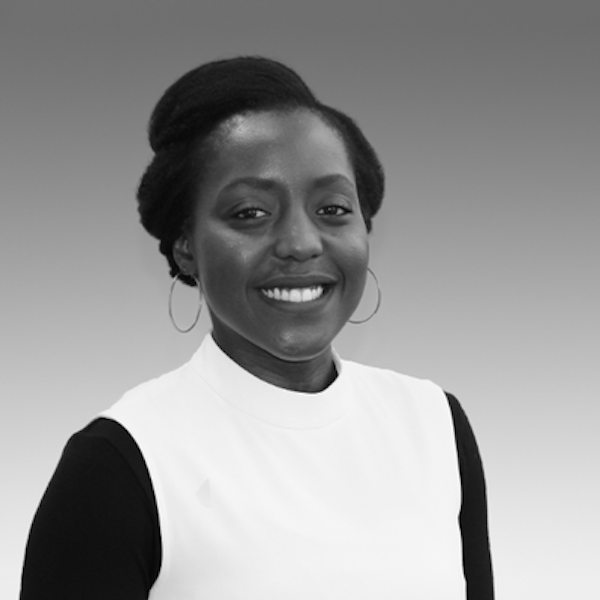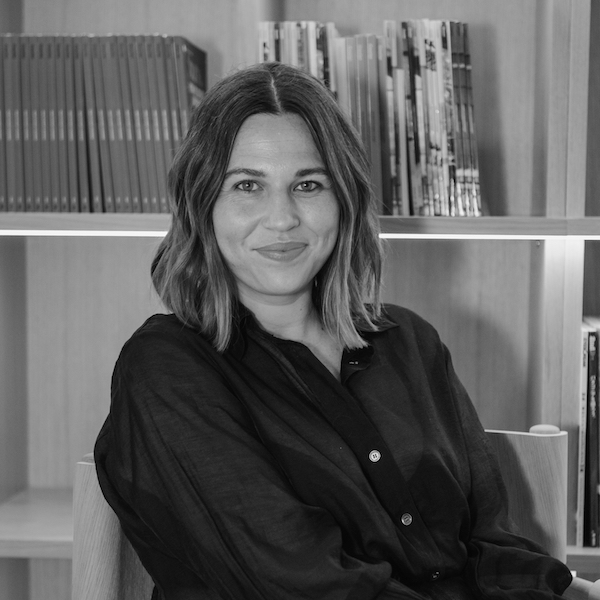Vivian Murinde
Creative Programme Producer
Vivian Murinde is an experienced creative programme producer who is on a mission to affect change for the next generation of creative talent.
Vivian spent her early career brand side working for the likes of Nicole Farhi and ITB Worldwide, before taking on the role as Senior Employment Manager at Create Jobs, an employability programme for young Londoners. Presently, she is working as Senior Regeneration Manager at London Legacy Development Corporation on an exciting new project, working closely with creative and cultural organisations, skill providers, local councils and talent in and around Olympic Park, with the aim to create new opportunities and diversify the sector.
Here our latest Creative Achiever shares insight into her line of work, discussing the importance of supporting underrepresented talent as well as creating diverse and inclusive working cultures, especially in our current climate.
Tell us a bit about what you do?
I work with creative businesses, young people, education institutions, and public and private sector organisations to design and develop large scale programmes that aim to create accessible routes into the creative sector for diverse young talent.
Currently, I am working on the London 2012 Olympic regeneration project in Stratford. It is one of largest regeneration projects in London. The Olympic Park is already home to many creative and tech businesses such as MATCHESFASHION, BT Sport, Studio Wayne McGregor, GRM Daily, and in 2022/3 will be home to a new V&A Museum, BBC Music Studios, London College of Fashion and Sadler’s Wells dance theatre. Alongside this is also Fish Island Village, a large dedicated complex for fashion studios in Hackney Wick.
My job is to ensure local talent from the diverse communities in east London have access to training and employment opportunities in the growing creative industry on and around the Park. I work with businesses across London to connect them to this talent, to build more diverse workforces and support the adoption of fair and inclusive working environments and practises.
I am also currently working on launching a creative skills hub on the Olympic Park early next year as part of the Hackney Bridge development. The hub will deliver training for local diverse talent from East London looking to start a career in the creative industries. It will support creative businesses to recruit and train diverse talent and will offer a series of free training workshops and masterclasses for organisations looking to build inclusive cultures and teams.
How did you get into your line of work?
I studied Fashion and Textiles at Manchester University and started my career working in the creative industry. I worked for brands such as Nicole Farhi, Ralph Lauren, Matthew Williamson and Orla Kiely.
However, I often felt deflated by the lack of diversity in the sector. So many of the people I grew up with were not represented. I got tired of being the only black person in a meeting and rarely being able to see other women like myself represented in positions of power and influence. However, at my last job in the industry I did have a great black female CEO, Emma Grede – that felt significant.
Growing up with African parents there was an expectation to pursue a ‘professional’ career path like law or medicine. This often stems from a lack of awareness of career opportunities in non-traditional sectors and the progression opportunities they can provide. The creative industries can be perceived as a sector with a lack of opportunity for progression, which isn’t true. On the flip-side, the sector can remain closed to certain groups of people without the money or networks to access job opportunities. This essentially led me to do what I do today. I wanted to create opportunities for young people, parents and education institutions to better understand the opportunities that exist in the sector. I wanted to open doors and create inclusive environments for people from all background.
What did you want to be when you were a kid?
So many things, my earliest memory is of wanting to be hairdresser because I loved experimenting with different hairstyles and seeing the transformation a new hairdo can create. I always felt good after having my hair done and loved experimenting with braids.
Ultimately, I was creative and academic. I loved learning and was drawn to opportunities where I could develop new skills and ideas. After being told by my school careers advisor that I should be a librarian and by my parents that I should be a lawyer, not too interested in either avenues, I soon realised I had to forge my own path and started exploring creative career options based on my love for fashion and the arts.
One of the big focuses of your job is helping employers to adopt new recruitment methods to create more inclusive working cultures, tell us a bit about that?
The creative industry in London still fails to reflect the diversity of the city. Around 11% of jobs in the creative economy are held by people from minority ethnic backgrounds despite these groups making up 40% of the London population. We know from various creative industry workforce studies that many people working in the sector have worked for free to get ahead, leaving those from lower socio-economic classes behind, and that recruitment practises can be informal and favour those with strong networks and personal ties to the industry.
As a result, a lot of the work I do aims to tackle this by supporting creative and cultural organisations to rethink their employment practises and build more inclusive cultures. Whether that’s through adopting fair recruitment policies that look at potential and talent over networks and qualifications or by encouraging the payment of London Living Wage as a minimum so young people starting out can actually afford to live and work in London, opening up the sector to those who previously couldn’t afford to work for free.
My work also supports businesses to review their working cultures. Programmes such as STEP offer training for creative businesses looking to recruit more diverse talent. It’s one thing increasing the diversity of your workforce through changes to your recruitment practises but if the culture isn’t right it’s not sustainable. People need to feel they can bring their full self to work and that individual differences are recognised and celebrated, that’s what builds effective teams – not homogenous values, attitudes and tastes.
Have you always been quite mission driven in what you do?
I think personal experience can be a strong driver and I’ve learnt a lot about what I’m passionate about and what change I want to enact through my own personal experience and the experiences of those around me.
Who are your biggest inspirations?
My parents, they left Uganda in their early 20’s and moved to Wales with a young family in the 90’s not knowing anyone and with very little money. They’ve worked tirelessly to provide opportunities for me and my siblings and their resilience, determination, strong work ethic are qualities I’ve always admired and strived to adopt.
What are you doing when you’re not working?
I love working out, running, CrossFit, cycling and yoga. I try and train for at least one sporting activity a year, either a marathon, triathlon or something similar. I love the physical and mental benefits of exercise. I also love food, cooking and eating out and getting stuck into a good book at home.
What’s the best thing about your job?
Seeing young people reach their potential, develop their skills and access opportunities they didn’t think possible. It’s also amazing to see creative businesses change the way they operate in favour of more inclusive cultures and practises.
I also love collaborating with people. I’m always really energised starting new projects with people who share the same mission but bring new ideas to the table in terms of how to get there. Learning from and growing with other people is really rewarding.
Finally, what advice would you give to young budding creatives looking to get their foot in the door?
Find out what energises you and work hard to develop it. Be inquisitive and explore your options. Surround yourself with people that will encourage and support you. Don’t give up!

